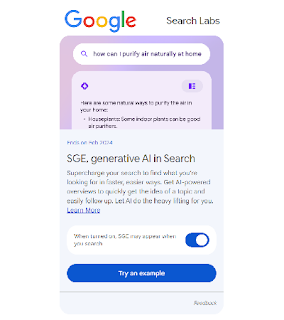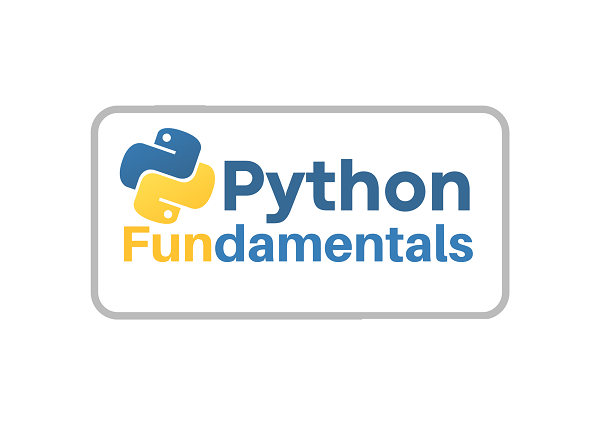Can AI Replace Teachers? A Look at the Pros and Cons of Automated Education
This article delves into the topic of using artificial intelligence in education, specifically whether it can replace human teachers. The article will explore the pros and cons of using AI in education, as well as the impact it can have on both students and educators. Readers will gain a better understanding of the current state of AI in education and its potential implications for the future.
Artificial Intelligence (AI) has been revolutionizing
various industries, and education is no exception. With the advent of AI, many
educators and experts have raised the question of whether AI can replace human
teachers.
In this article, we will
explore the potential of AI in education and discuss whether it can truly
replace teachers.
What is Artificial Intelligence (AI)?
Definition and
Explanation of AI
Artificial Intelligence
refers to the ability of machines to perform tasks that usually require human
intelligence. It involves the creation of algorithms and models that enable
machines to learn from data, adapt to new situations, and make decisions based
on that learning. AI technologies include Machine Learning, Natural Language Processing, and Computer Vision, among others.
Types of AI
There are three main
types of AI: Narrow or Weak AI, General AI, and Super AI.
Narrow AI refers to AI systems designed to perform specific
tasks, such as image recognition, language translation, or recommendation
systems.
General AI, on the other hand, refers to AI systems that can
perform any intellectual task that a human can do.
Finally, Super AI
refers to AI systems that surpass human intelligence and can perform tasks that
are beyond human capabilities.
Examples of AI in
Education
AI has already made
significant contributions to education in various ways, such as personalized
learning, intelligent tutoring systems, adaptive assessment, and more. For
example, AI-powered chatbots can provide students with 24/7 support and
guidance, while AI-powered grading systems can provide more objective and
consistent evaluations of student work.
The Advantages of AI in Education
Personalization of
Learning
One of the key advantages
of AI in education is its ability to personalize learning experiences for
individual students.
AI can analyze student
data, such as learning style, academic strengths, and weaknesses, to create
tailored learning plans and recommendations.
Enhanced Assessment
Capabilities
AI can also enhance
assessment capabilities by providing more efficient and accurate grading,
automated feedback, and adaptive assessments that adjust to student
performance.
Improved Learning
Efficiency
AI can streamline
administrative tasks, such as record-keeping and grading, allowing teachers to
focus on more important tasks, such as instruction and student support.
Cost-effectiveness
AI can also reduce costs
in education by automating administrative tasks, reducing the need for
additional personnel, and providing more efficient use of resources.
Access to Learning
Resources
Finally, AI can provide
greater access to learning resources, particularly for students in remote or
underserved areas. AI-powered online platforms can provide quality education to
students anywhere in the world.
The Role of Teachers in Education
Emotional Connection with
Students
Teachers play a crucial
role in building emotional connections with their students. They provide a safe
and supportive learning environment that promotes positive relationships,
trust, and respect. Teachers are also equipped with the interpersonal skills
necessary to handle the complex emotional and social needs of their students.
Flexibility and
Adaptability
Teachers possess the
flexibility and adaptability to adjust their teaching style, approach, and
content to meet the unique needs of their students.
They can modify their
instruction based on student feedback and assessment data, providing a tailored
learning experience.
Socialization and
Collaboration
Teachers also provide
opportunities for socialization and collaboration, which are essential for the
development of social skills, teamwork, and communication.
They facilitate classroom
discussions, group projects, and other activities that promote cooperation and
collaboration.
Real-Time Feedback and
Support
Teachers provide
real-time feedback and support to their students, providing immediate
clarification and guidance when needed.
They can assess students'
understanding of concepts and adjust their instruction to address areas of
weakness.
Empathy and Compassion
Finally, teachers possess
empathy and compassion, which are crucial for creating a positive and
supportive learning environment.
They understand their
students' needs, challenges, and aspirations and work to support their growth
and development.
Can AI Replace Teachers?
The Limitations of AI
Despite its many
benefits, AI has limitations that prevent it from fully replacing human
teachers. AI lacks the emotional intelligence, empathy, and creativity required
for building meaningful relationships with students.
It also lacks the ability
to provide the level of personalized support and feedback that teachers can
provide.
The Importance of Human
Connection in Education
Human connection is
essential in education, and it is not something that AI can fully replicate.
Teachers play a critical
role in building meaningful relationships with their students, which is
essential for creating a positive and supportive learning environment.
The Role of Teachers in
Nurturing the Whole Child
Teachers are not only
responsible for imparting knowledge but also for nurturing the whole child.
They help students
develop social and emotional skills, critical thinking, and problem-solving
abilities. These skills are crucial for success in life and cannot be fully taught
by AI.
The Potential Negative
Consequences of AI in Education
The over-reliance on AI
in education can also have negative consequences, such as the depersonalization
of learning and the potential loss of jobs for human teachers.
The Potential of AI to
Augment, not Replace Teachers
While AI cannot replace
human teachers, it has the potential to augment their abilities and provide
additional support.
AI can automate
administrative tasks, provide personalized learning experiences, and enhance assessment
capabilities, allowing teachers to focus on more important tasks such as
instruction and student support.
Conclusion
The Need for
Collaboration between AI and Teachers
The key to success in
education is the collaboration between AI and human teachers.
AI can provide valuable
support and assistance, but it cannot fully replace the critical role that
teachers play in educating students.
The Importance of
Striking a Balance between Technology and Human Connection
The use of technology in
education should be balanced with the importance of human connection.
Teachers should continue
to build meaningful relationships with their students and provide personalized
support and feedback, while also leveraging AI to enhance their capabilities
and provide additional support.
The Potential of AI to
Enhance Education, not Replace It
Ultimately, the potential
of AI in education is not to replace human teachers but to enhance their
capabilities and provide additional support to improve the learning experience
for students.
AI has the potential to
revolutionize education and transform the way we learn, but it cannot replace
the critical role that human teachers play in educating the next generation.




Comments
Post a Comment